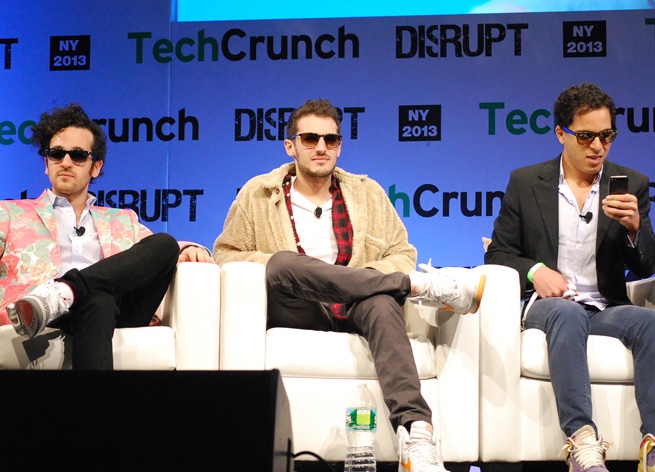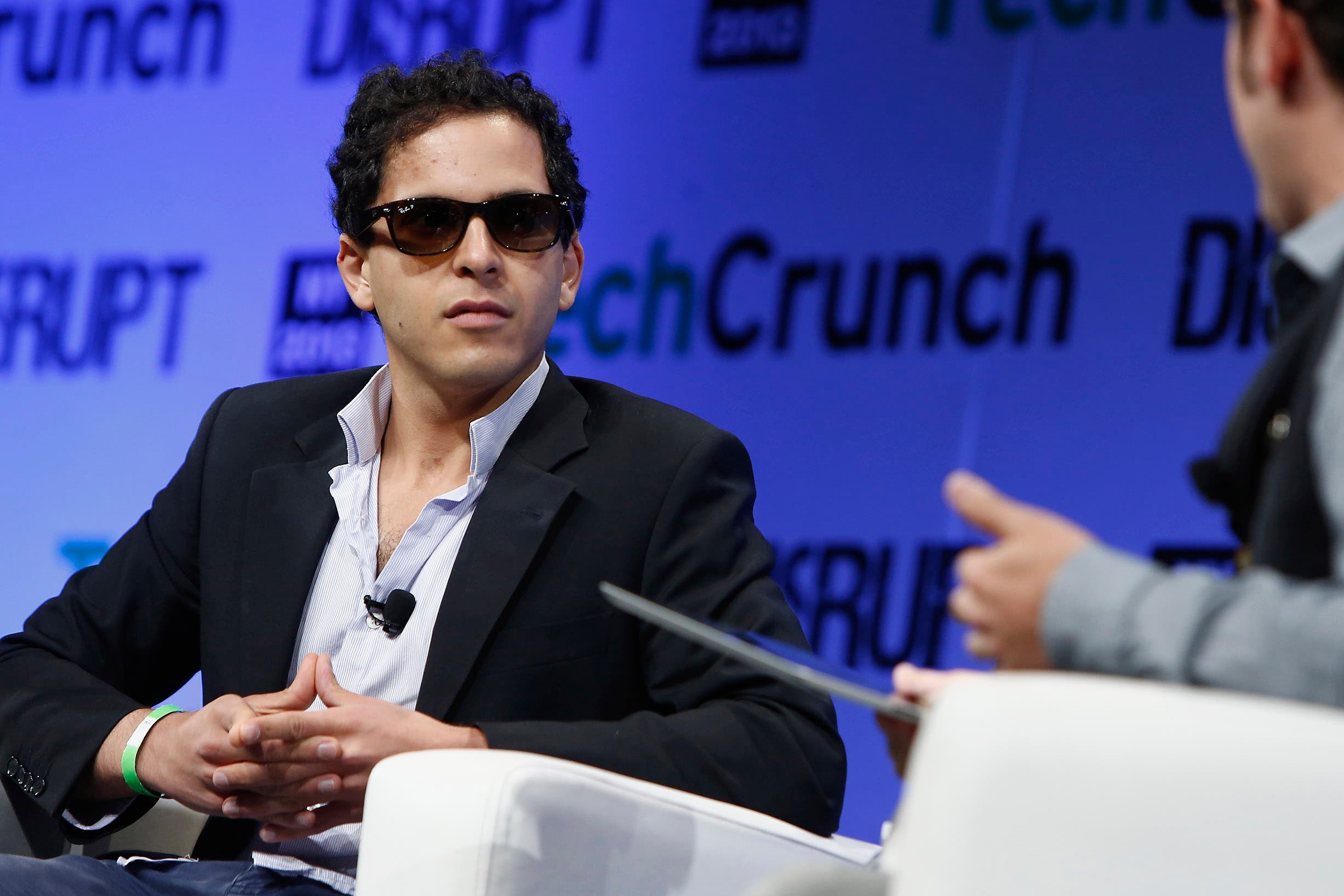You’re probably familiar with Genius, the platform that aimed to decipher the intricacies of song lyrics, connecting music enthusiasts with the deeper meanings behind their favorite tracks. At one point, it was valued at a staggering $280 million, but today, it’s a shadow of its former self, acquired for less than a third of that by a holding company known for acquiring struggling startups and capitalizing on ad revenue. How did a platform with a thriving online community, investments from music industry giants, and an innovative user-generated content model spiral into obscurity? The story is one of twists, turns, controversies, and a touch of celebrity drama.
The Humble Beginning and How It All Started:
Our story begins with a 26-year-old named Mabu, who was looking for a place to stay after being fired from his law firm. Sleeping on a friend’s apartment floor, Mabu found himself discussing lines from Cam’ron’s album “Purple Haze” with Tom, his friend’s roommate. This seemingly casual conversation sparked the idea of creating a website where people like Tom could delve deeper into song lyrics’ meanings. Tom quickly developed the site “Rap Exegesis,” but the name didn’t quite cut it, leading to a switch to “Rap Genius.” Mabu, Tom, and their friend Ilan began taking the platform more seriously, and Mabu himself contributed many of the earliest annotations.

Early Success and High Hopes for Business:
By 2011, Rap Genius had rapidly transformed from a humble idea born in a New York City apartment into a digital powerhouse, captivating the imaginations of music enthusiasts around the world. With over a million unique monthly visitors, it has become the go-to platform for those eager to dissect the cryptic meanings hidden within their favorite song lyrics. But Rap Genius wasn’t content with merely providing lyrical enlightenment; they had bigger ambitions—to foster the most extensive rap discussion community ever seen. Their vision was audacious, and it was working.
Recognizing the potential and growing popularity of Rap Genius, venture capital firm Andreessen Horowitz decided to throw their weight behind this burgeoning startup. They believed in the platform’s ability to bridge the gap between artists and their fans, connecting them through a shared passion for deciphering lyrics. With a hefty investment of $15 million, Rap Genius was poised to embark on a new phase of growth and innovation.

The year 2012 marked a pivotal moment in Rap Genius’s journey. Buoyed by their newfound financial backing and an ever-expanding user base, the platform secured additional funding, further solidifying its position in the digital landscape. Notably, Rap Genius received recognition and accolades when its founders graced the pages of Forbes’ prestigious “30 Under 30” list. It was a testament to the platform’s meteoric rise and the impact it had already made in the world of music and tech.
However, amidst this rapid ascent to stardom, a colorful and enigmatic figure emerged as the face of Rap Genius—Mabu. His larger-than-life persona attracted attention from all corners, including some of the biggest names in the music and tech industries. Mabu’s charisma led to a dinner invitation that would go down in Rap Genius lore—an exclusive gathering that included Nas, Mark Zuckerberg, and other influential figures.
But it wasn’t long before Mabu’s penchant for controversy came to the fore. An incident during the dinner, combined with a series of brash and unfiltered tweets, sent shockwaves through the Rap Genius community and the wider entertainment world. Mabu attributed these actions to a brain tumor, but the controversies were only beginning.
It’s Getting Bad:
In around 2014, Rap Genius shifted its focus from the community to video content, neglecting the forums. Users were asking for platform updates, but their pleas went unanswered. In a puzzling move, Rap Genius released a browser extension that allowed users to annotate any website, but it was a failure, as it didn’t integrate well with the existing content. The community, the backbone of RapGenius, felt abandoned, and that was the beginning of the bad things to come.
Genius rebranded itself with a new logo and expanded into various sections, including: ‘Fashion Genius’, ‘Tech Genius’, and ‘News Genius’. And while you may see diversification as a strategic move for any company, the abrupt introduction of these new sections left many in the community perplexed. Users found themselves questioning the platform’s direction and whether it had lost sight of its original mission.
Further complicating matters was the launch of Genius Live—a feature that allowed viewers to pay for the privilege of asking questions during artist Q&A sessions. In theory, this initiative seemed like a novel way to engage with artists and enhance the user experience. But it ultimately failed to gain significant traction. Once again, it appeared that Rap Genius was struggling to strike the right balance between innovation and catering to the needs and desires of its community.

From retrospective, this period of change and experimentation at Rap Genius was a critical juncture in its evolution. It represented a departure from the platform’s roots, which had been firmly planted in collaborative lyric annotation and community-driven discussions. The neglect of the forums, the misstep with the browser extension, and the unclear direction signaled a growing divide between Rap Genius and its once-loyal users.
While change can be a necessary part of growth, it must be undertaken with sensitivity to the needs and expectations of the community that helped build a platform in the first place. In the case of Rap Genius, these changes left many users feeling adrift and uncertain about the platform’s future.
As Genius continued to focus on YouTube, the community felt alienated furtherly. The forums dwindled, and many users left. The launch of Genius News, multiple layoffs, and various missteps, including staff departures due to allegations of mistreatment, further eroded the platform’s standing.
The Final Destiny:
In 2021, Genius was sold for $80 million to Media Lab in a fire sale. The company’s executives walked away with hefty paydays, while employee stock options became worthless, and the community that once fueled Genius has all but disappeared.
Today, Genius clings to life, sustained by its verified artist annotations, but the glory days of a thriving lyric annotation community seem like a distant memory. The rise and fall of Genius serve as a cautionary tale of an ambitious startup that lost sight of its roots, leaving its once-dedicated community in lurch.

The story of Genius offers a valuable lesson about the importance of staying connected to one’s core community and values in the face of rapid growth and change. As Genius expanded its focus beyond its original mission of annotating song lyrics and delved into new ventures like video content, it inadvertently neglected the very community that had fueled its initial success.
The lesson here is that as a company evolves, it must do so in a way that maintains a strong connection with its core users. Neglecting or alienating the community that helped build the platform can have significant consequences. Users are often a company’s most passionate advocates and a valuable source of feedback and innovation. Disregarding their needs and desires can lead to a loss of trust and engagement.
Balancing innovation with a commitment to your core values and user base can help ensure long-term success and sustainability.










